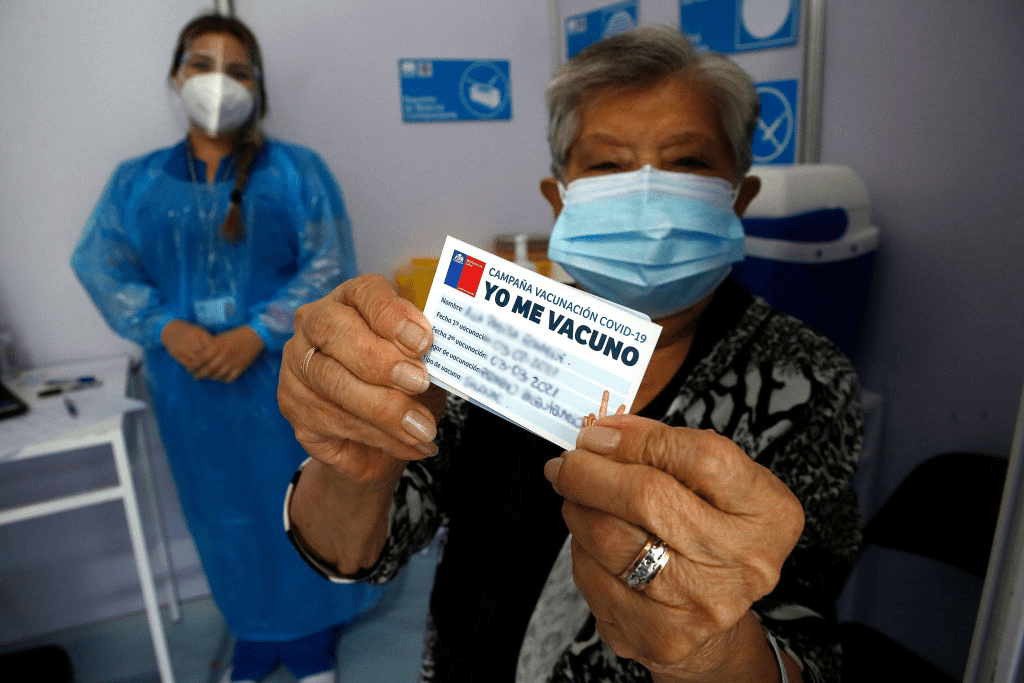Get ahead with vaccination and you can open up your country sooner. It seems logical, but it is not quite how things are working in Britain, where in spite of this week’s relaxation our lockdown restrictions remain among the toughest in the world.
This applies even less in Chile. On 29 March, 6.53 million of the country’s 19 million population had received a first dose of vaccine (either Pfizer or the Chinese Sinovac) and 3.37 million had received a second dose. In combined doses per million people, Chile is a little ahead of Britain. Yet large parts of the country have been placed back into a lockdown even more severe than Britain’s over the past three months. In the capital Santiago, people are not even allowed to go shopping at the weekend – and must obey a permit system on weekdays.
In spite of their vaccination programme, figures for new infections are running ahead of where they were when the virus peaked in Chile last May and June. On 26 March, confirmed cases hit a new record of 7,626 – compared to a peak of 6,938 on 14 June last year. Critical care bed occupancy, at 3,461 on 29 March, is higher than the peak of 2,846 reached on 3 July last year. Deaths, however, are markedly lower than they were during the peak last year: back then they reached 195 on 13 June. The highest figure in recent weeks was 113 on 16 March.
Why is Chile heading back into lockdown? The government has been concerned about new variants, although they have not been measured in great numbers. Up until 26 March only 64 cases of B117 (the Kent variant) had been detected, along with 45 cases of P1 (the Manaus variant). Moreover, the Chilean cases of B117 do not seem to have been especially serious – 55 per cent of them are asymptomatic.
The Chilean experience has been taken as a warning of what could happen here if we relax restrictions too early, while only half the population has been immunised. However, the UK and Chilean populations have been given a very different mix of vaccines. While Pfizer has been offered in both countries, the bulk of vaccinations in Britain have been AstraZeneca (not available in Chile) and the bulk of vaccinations in Chile have been Sinovac. According to the Chilean Ministry of Finance, by 3 March the country had taken delivery of 10 million Sinovac doses and only 700,000 Pfizer doses.
Of all vaccines in use in the world, Sinovac is the one with the least impressive and most inconsistent results. A Brazilian study in January suggested that it had an efficacy rate in preventing symptomatic illness of 50.4 per cent, way below the 95 per cent reported for Pfizer and 76 per cent measured for AstraZeneca in its recent US trial.







Comments